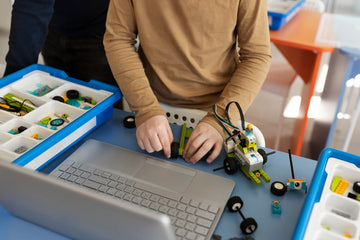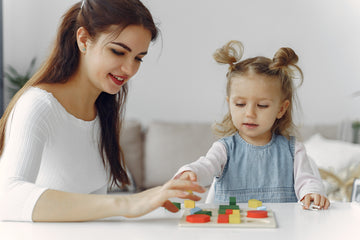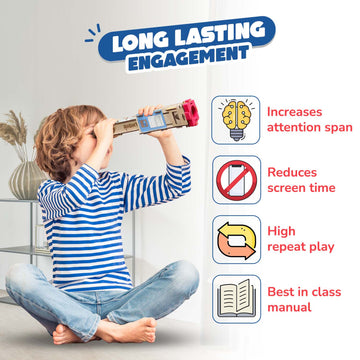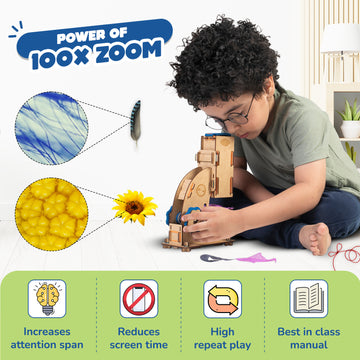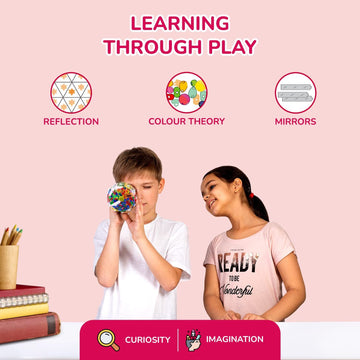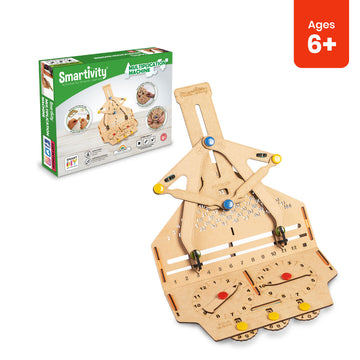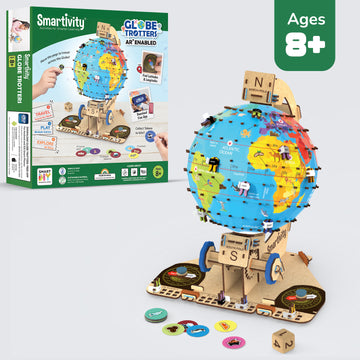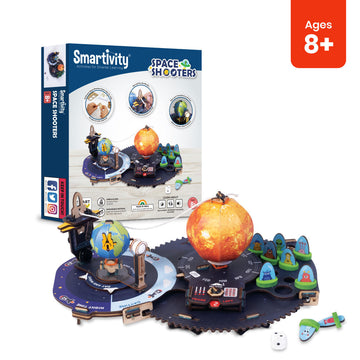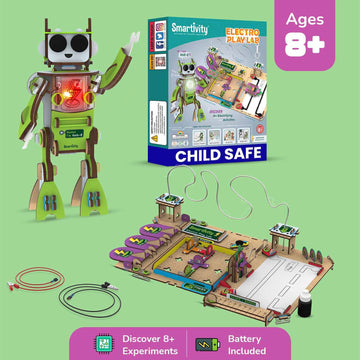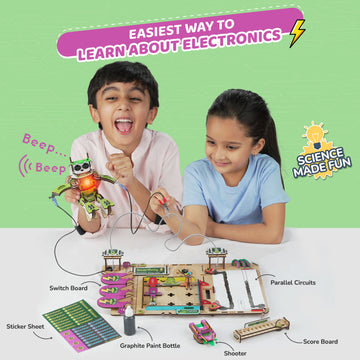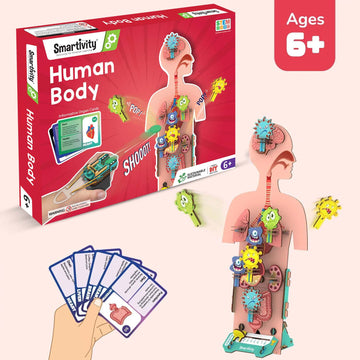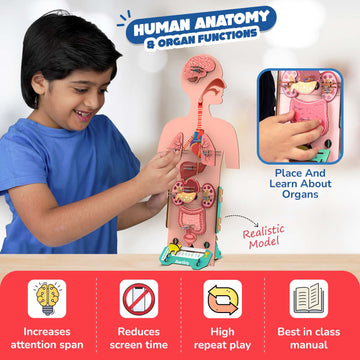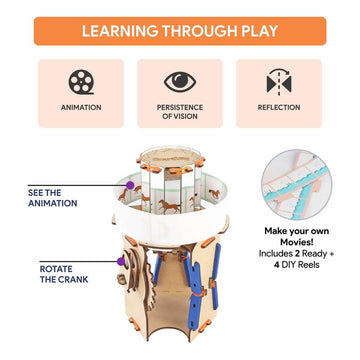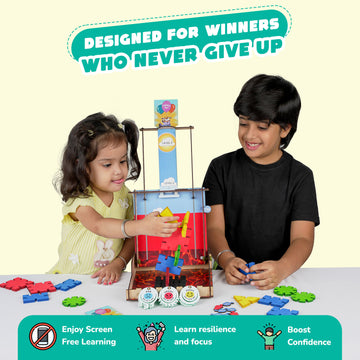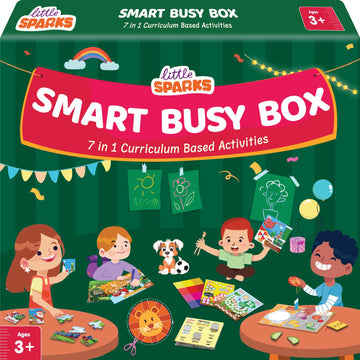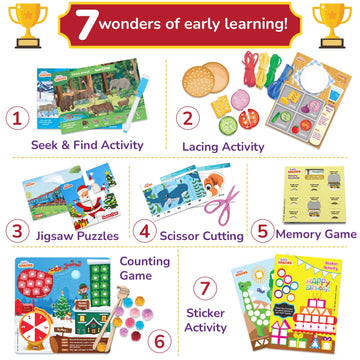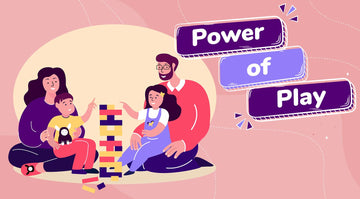
Play is an activity that oozes fun, creativity and enthusiasm. But why is it important for children? What makes playing fun, yet, an important learning experience for a child? In the words of Lev Vygotsky, a Russian psychologist, “In play a child is always above his average age, above his daily behavior, in play, it’s as though he were a head taller than himself.”
It is no coincidence that the United Nations lists play as ‘one of the basic rights of every child.’ Playing gives children, a medium to be expressive, a way to enhance their inventiveness, dexterity, physical, cognitive, and emotional strength. A child’s development is not just ensured by studies and a healthy diet. Equally important is practicality, an extremely essential aspect that influences the way they grow, both mentally and physically.
Development of Motor Skills

The development of fine motor skills in children begins at the age of 1-2 months, however, it continues till the time they turn 11-13. Fine motor skills refer to the careful control of the small muscles in the hands, feet, fingers and toes. Engaging these muscles leads to greater dexterity and control. With play, children develop this finger coordination. With toys that give children a chance to work, to use their finger muscles to pick up and assemble parts, they encourage their fine motor skills to develop further.
Cognitive Development

This however is just one small aspect of the bigger picture. The bigger benefit that playing introduces in the life of children. The most significant being cognitive development. A study on rats showed that playing leads to bigger brains, imagine the benefits that play brings to a complex structured, living, breathing human being.
Stats reveal that playing improves children’s adjustment, language, and social and emotional stability from 33 percent to 67 percent. While playing, a child develops the ability to enhance their hand-eye coordination, problem solving abilities, concentration skills and gain control over their impulses and emotion regulation.
Social Enhancement

Not only this, a child learns to become more social, empathetic, happier and a better communicator. While playing, a child learns new details, opening the door to a world of creative enchantress. They learn to interact, negotiate and make choices and decisions.
According to psychologist Edward Fisher, playing can improve a child’s cognitive, linguistic, and social development. He came to this conclusion after examining 46 researches on this topic. If there are so many researches emphasising the fact that play is important in a child’s life. Without the fear of being labelled a sheep, I think it’s time to jump on to the bandwagon!
Creativity Enhancement

Building on to the concept of enhanced creativity through play. Many studies show that playing inculcates the concept of divergent thinking in children. Playing gives them a chance to imagine, create idea, visualize and create. Thus, bringing it all to life.
In today’s day and age, children find themselves stuck in front of a screen for hours on end. Whether it’s for online classes or just a sedentary desire. Their creative juices get curtailed and the mind becomes groggy. One way to bring it back to life is to allow them a space where they can let flow their creative powers and have fun. With play, they find a break from the dull, monotonous aspects of everyday life.
It gives them a chance to re-ignite the flames of creativity that may have become dormant due to continuous exposure to screens, among other things. Thus, improving their ability to think and act creatively.
Healthy Parent-child Relationship

It also helps in creating a healthy, powerful relationship between the child and the parent. When parents take time off from work to play with their children, engaging in an activity they enjoy, it strengthens their relationship. Play can thus serve as an important part of building a strong, long-lasting parent-child bond.
Disadvantages of Not Engaging in Play

Children who do not engage in quality playtime face the possibility of curtailing their brain and muscles from developing to its full potential. It derails their social skills and problem-solving abilities. They also face the scare of losing their sensory stimulation which might lead to decreased brain activity, and an enhanced risk of anxiety, depression, and obesity. Frightening, yet the reality.
Play is the most powerful way in which a child can learn. The basic belief is that no child wants to learn or study but every child wants to play. However, if the right toys that challenge and build their cognitive skills are given to them, then playing can be corroborated with learning and the child now gravitates to and enjoys it. And because the involvement is so intense, there is a deeper understanding of what is happening. The retention of learning is longer than what just learning from textbooks ensures.
This is still just a sliver of what the true benefits of play are. It seems almost impossible to put into words the contribution that play makes in the life of children and their positive development and growth. The intellectual enhancement and cognitive development that engaging in play kicks off is so important in the way the child grows and continues to play!


